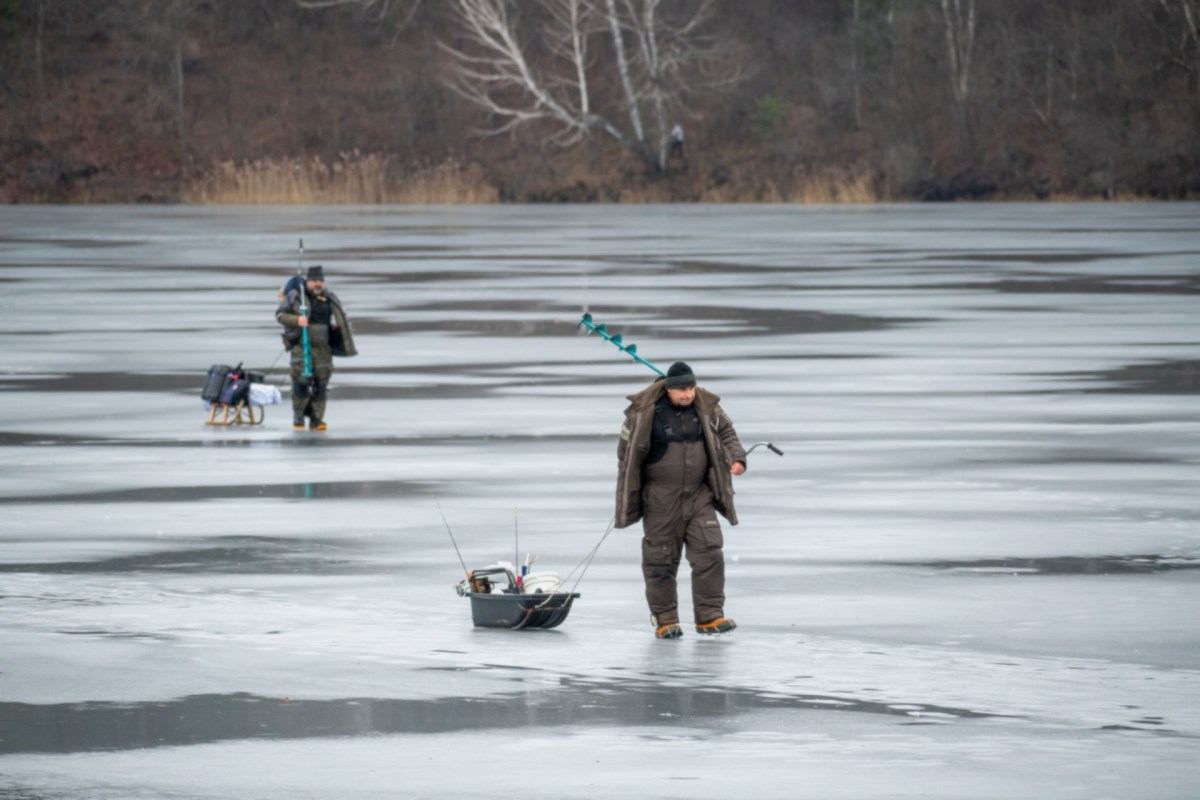For generations, New England's frozen lakes have been a favorite spot for ice fishing enthusiasts. But warmer temperatures are melting the ice earlier than usual, forcing fishermen to pack up their gear and leave the lakes much sooner than expected.
What's happening?
As temperatures rise, the ice on lakes melts faster than usual, compelling fishers to remove their bob-houses — small wooden shanties used for shelter during ice fishing — much earlier than planned. The Guardian reported that winter temperatures in the region failed to drop below 0 degrees Fahrenheit, which hasn't happened since the 1950s.
Johnny Cutter and Ethan O'Neil, seasoned ice fishers, are among those experiencing the impact firsthand. They recounted scrambling to rescue their bob-houses from Lake Winnepocket, fearing the rapidly melting ice beneath their feet. Cutter's observation that "global warming is real" echoes the sentiments of many witnessing the changing climate's tangible effects.
"It's just great being out here," Cutter said. "This is a huge hobby for us. And we're losing the opportunities to do it."
Why is melting ice concerning?
The significance of ice fishing extends beyond mere recreation; it embodies a cultural heritage deeply ingrained in New England's identity. Generations have gathered on frozen lakes, passing down traditions and forging connections amid the winter chill. However, the warming trend threatens to disrupt this activity.
The Earth's overheating can cause cascading effects. Melting ice not only raises sea levels but also affects freshwater supplies that many communities rely on. The warming planet is also affecting our oceans. As temperatures rise, ocean temperatures rise, which can lead to the bleaching of coral reefs and affect marine biodiversity. Warmer oceans can also result in more powerful tropical storms.
What is being done about the melting ice?
In response to the encroaching threat, efforts are underway to mitigate the impact of global heating on ice fishing. Governments around the world are beginning to recognize the urgency of the situation.
Despite some setbacks and slower progress than many would like, there are commitments in place to reduce global temperatures. For example, the Biden administration in the United States has pledged to cut the country's pollution by 50% to 52% below 2005 levels by 2030. This is part of a broader effort to transition to more sustainable and renewable energy sources, like wind and solar power, which are becoming cheaper and more accessible every year.
Additionally, there's a strong push for international cooperation on this front. World leaders regularly meet at summits, such as the United Nations Climate Change Conferences, to set targets and strategize on global actions to curb warming. A report from the Intergovernmental Panel on Climate Change underscores the need for rapid action and presents a range of solutions to help stabilize global temperatures and raise awareness about the importance of preserving winter ecosystems and beyond.
Join our free newsletter for cool news and cool tips that make it easy to help yourself while helping the planet.









